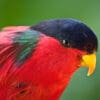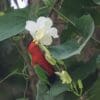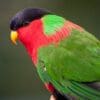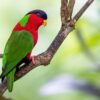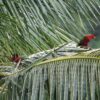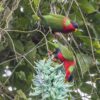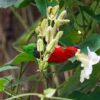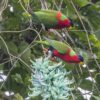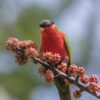Collared Lory
Also known as:
Collared Lorikeet, Solitary Lory, Ruffed Lory, Fijan Lory, Kula (Fiji)
Also known as:
Collared Lorikeet, Solitary Lory, Ruffed Lory, Fijan Lory, Kula (Fiji)

Phigys

solitarius
Size:
20 cm (7.8 in)
Weight:
75-85 g (2.6-3 oz)
Subspecies including nominate:
one
Colour Adult:
Both adults forehead, lores and crown dark purple; paler and more blue in the female with hindcrown washed green; elongated feathers of nape yellow/green, widely tipped with red; wings and back green, becoming yellow/green on rump; cheeks and ear coverts to throat and upper abdomen red; thighs and lower abdomen dark purple. Beak dark orange. Eye orange/red.
Colour Juvenile:
As in adult but with breast and upper abdomen faintly barred blue/purple; hindcrown and occiput dull purple, the feathers margined green red at tips minimal or absent. Beak brown. Eye pale brown.
Call:
Noted as shrill and screechy two-notes, the second note drawn out more than the first. Single shriek sometimes uttered while perched.
More Information:
Content Sources:
CITES
BirdLife International
Cornell Lab of Ornithology/Birds of the World
Parrots: A Guide to Parrots of the World, Juniper and Parr, 1998
Parrots of the World, Forshaw and Cooper, 1977. 2010 edition
Parrots of the World, Forshaw, 2006.
Captive Status:
Not commonly kept.
Longevity:
—
Housing:
Indoor aviary 12′ x 6′ x 6′ (3.6 x 1.8 x 1.8 m).
Diet:
Commercial or homemade nectar; fruits and vegetables may be offered. May take mealworms and hard boiled eggs. Offer commercial kibble.
Enrichment:
Provide flowering branches as food and enrichment. Love to bathe. Do best in a colony environment.
Nest Box Size:
Hollow nest log. Vertical box 6″ x 6″ x 24″ (15 cm x 15 cm x 61 cm).
Clutch Size:
1 or 2
Fledging Age:
About 9 weeks old.
Hatch Weight:
—
Peak Weight:
—
Weaning Weight:
—
World Population:
Unknown, stable.
IUCN Red List Status:
Least Concern
CITES Listing:
Appendix II
Threat Summary:
Not globally threatened. A BirdLife “restricted-range” species. Common in forests and wet areas on Viti Levu and Vanua Levu; also common on Makogai Island. Rare on Ngau possibly due to nest-site competition from Prosopeia tabuensis. Has also been trapped for red feathers. This species is considered to have a medium dependency on forest, and tree cover is estimated to have declined by 2.9% within its range over the past three generations. As a precautionary measure, it is tentatively suspected that this may have led to a 1-19% decline in the species’ population.
Range:
Found on the larger islands of Fiji Group, including northern Lau Archipelago.
Habitat:
Found up to 1200 m (3936 ft). Occurs mainly in lowlands in humid forest, forest edge, plantations and second growth. May also be found in areas with flowering trees such as gardens.
Wild Diet:
Diet includes a variety of flowers including coconut palm and drala Erythrina indica and Spathodea campanulata; also fruit including mango Mangifera indica and soursop Annona muricata.
Ecology and Behaviour:
Are conspicuous and noisy. Found in pairs or small groups of five to fifteen individuals, but have been seen in flocks of up to 50.
Clutch and Egg Size:
1 or 2 broadly elliptical eggs, 26.0 x 22.0 mm (1 x 0.8 in)
Breeding Season:
July, November-December. Nest is in cavity in tree or sometimes a rotting coconut.
Related Links:
—
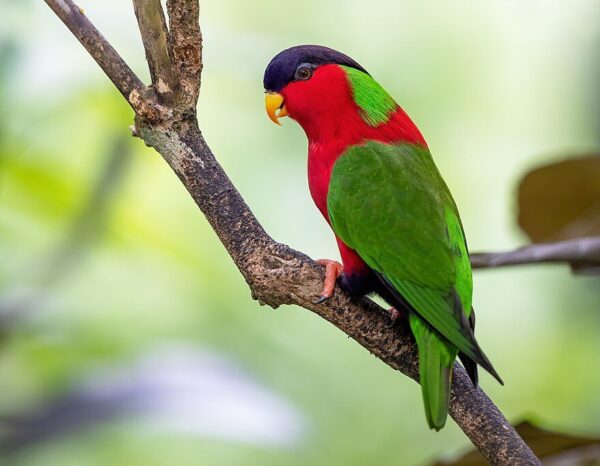
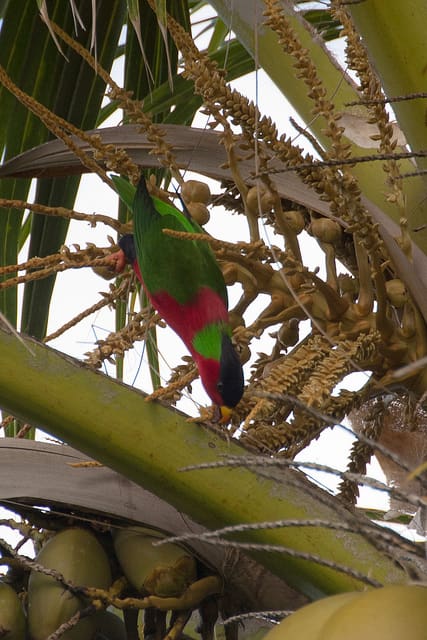
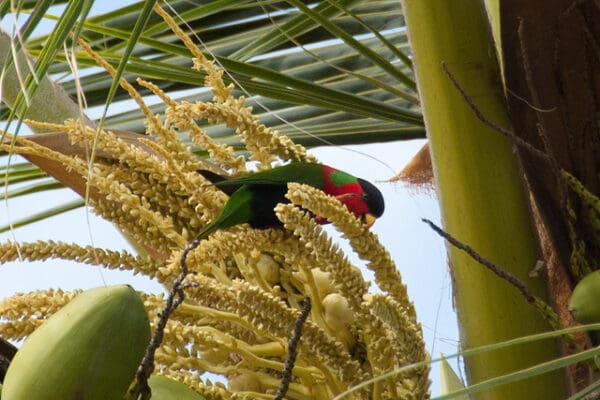
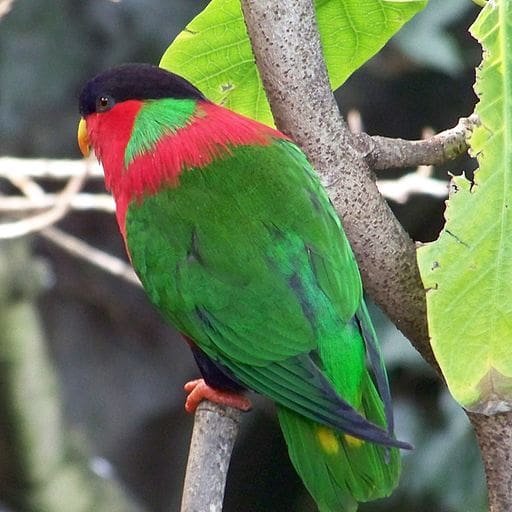
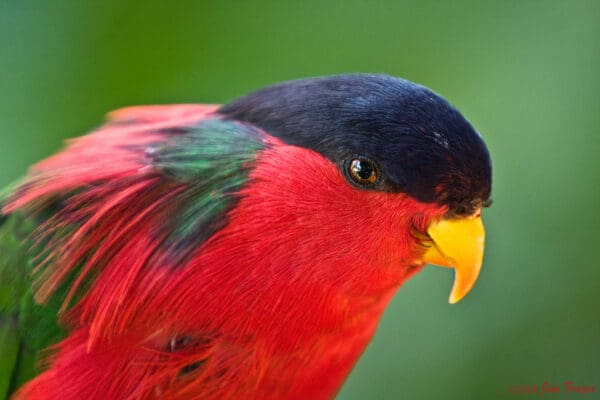
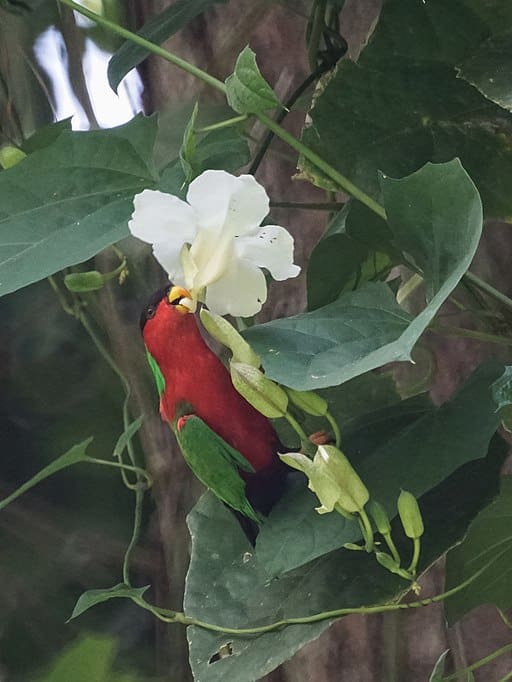
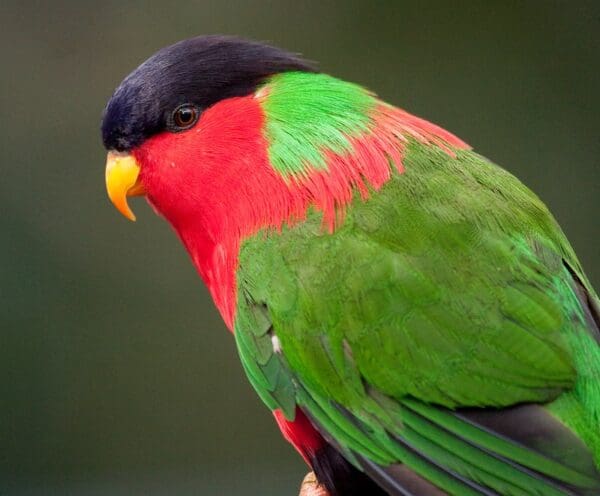
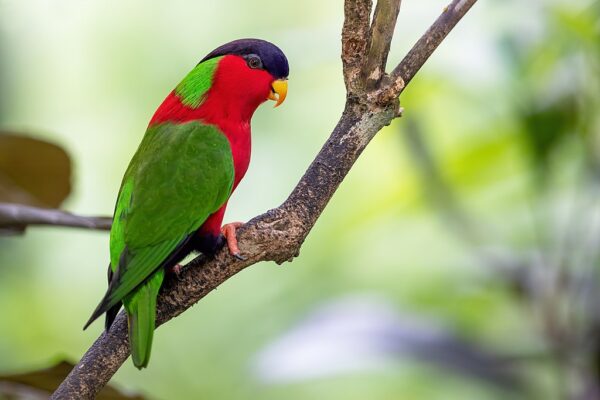
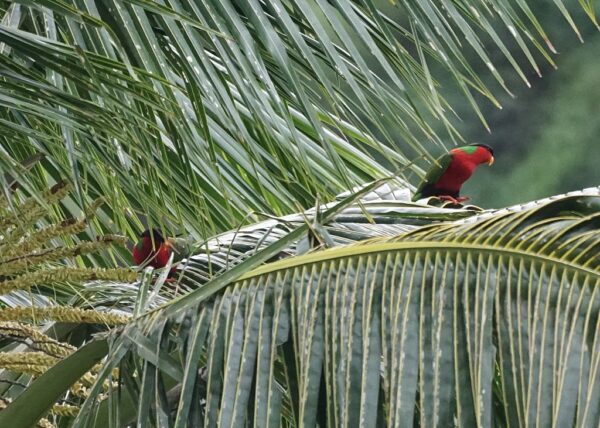
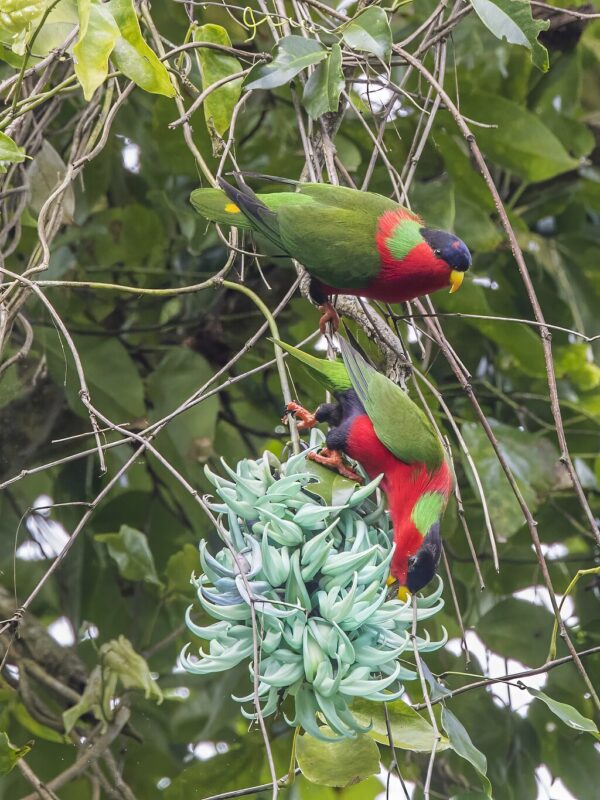
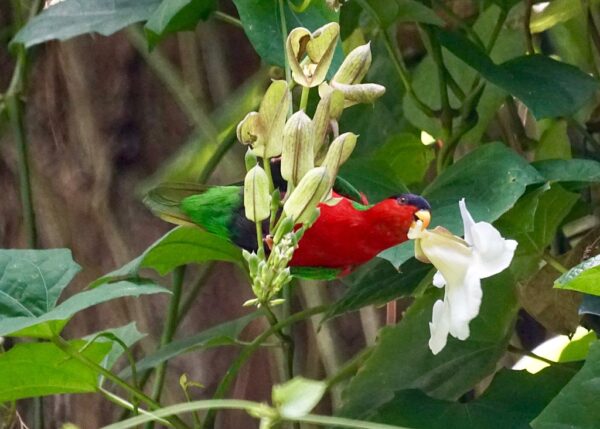
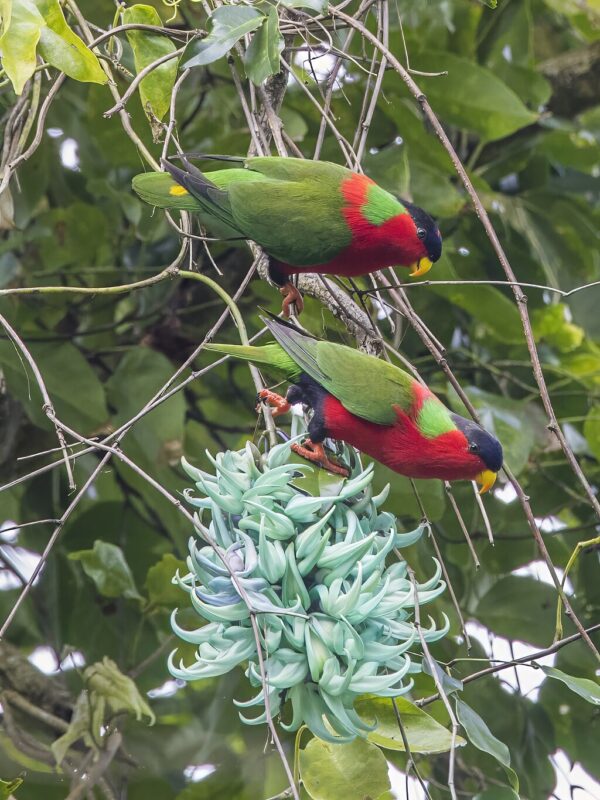
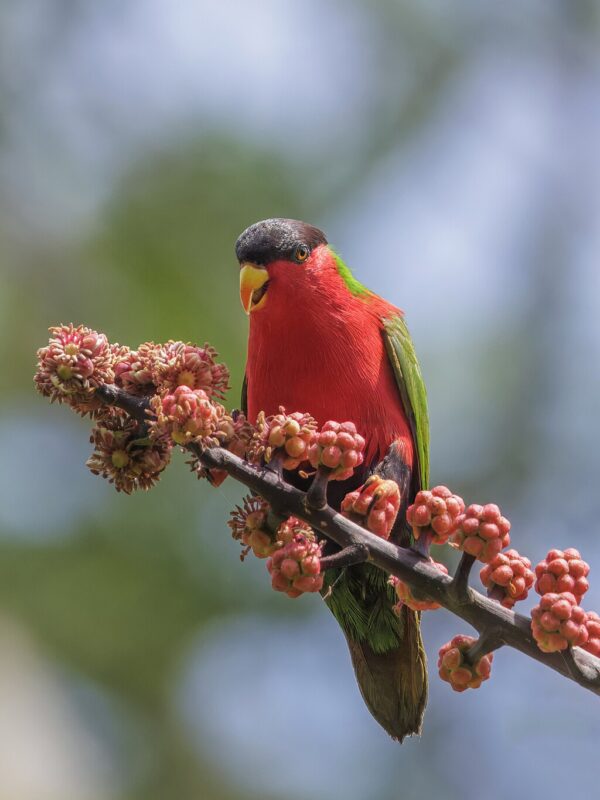
![© JJ Harrison [CC BY-SA 3.0] via Wikimedia Commons A wild Collared Lorikeet perches on a branch](https://parrots.org/wp-content/uploads/2024/08/Collared_Lorikeet-c-JJ-Harrison-CC-BY-SA-3.0-via-Wikimedia-Commons-e1731609790866-100x100.jpg)
![© Paul Asman and Jill Lenob [CC BY-NC 2.0] via Flickr A wild Collared Lorikeet forages in a tree](https://parrots.org/wp-content/uploads/2023/01/wpt_Collared-Lorikeet_1239-10-100x100.jpg)
![© Paul Asman and Jill Lenob [CC BY-NC 2.0] via Flickr A wild Collared Lorikeet forages in a tree](https://parrots.org/wp-content/uploads/2023/01/wpt_Collared-Lorikeet_1239-9-100x100.jpg)
![© David Buranich Jr. [CC BY-SA 2.0] via Wikimedia Commons A Collared Lorikeet perches on a branch](https://parrots.org/wp-content/uploads/2023/01/wpt_Collared-Lorikeet_1239-3-100x100.jpg)
